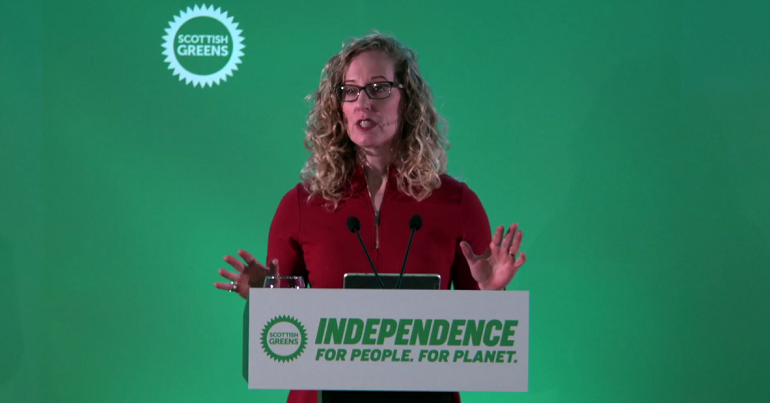Autumn statement: welfare is the most important infrastructure we have
George Osborne has always reminded me of the boys I used to debate against at other minor public schools. So, in true teenage debate competition fashion, let’s start with a dictionary definition:
“infrastructure: the basic, underlying framework or features of a system or organization.”
Yesterday, we were told that the Chancellor is increasing spending on infrastructure whilst cutting spending on welfare. Such statements are confusing “infrastructure” for “lumps of rock”.
There are, as I see it, two reasons that you would increase spending on infrastructure. The first is that you believe that the spending itself will be good for the economy: the money will create jobs, the newly employed people will buy new things, shops will employ more people, etc.
In this case, there is only one notable difference I can see between what Osborne calls ‘infrastructure’ spending and what he calls ‘welfare’: In the case of infrastructure, almost all of the jobs created are in construction. And this means that they will almost all be done by men. In the case of welfare, the vast majority of jobs are done by women. So, when you cut spending in one to increase spending in the other, all that you do is transfer jobs from women to men.
The second reason might be that you believe that the underlying framework of your system could be more efficient – and that this lack of efficiency is in some way holding back your economy. The classic example would be that late trains cost people time working, so you invest in better train lines.
However, in practice, I see very little notable difference between what Osborne sees as ‘welfare’ and what he sees as ‘infrastructure’ – other than who it is for. What the Chancellor calls infrastructure, I could call corporate welfare. What he calls welfare, I could call social infrastructure. I know this isn’t the convention, so let me explain.
You say “infrastructure”, I say “corporate welfare”…
Spending money on building stuff is often a good thing. Many of the things George Osborne is throwing cash it will be worthwhile projects, I’m sure. But unlike him, I don’t pretend to believe in free markets. Let’s take a specific example: the Treasury is going to pay to upgrade our broadband network. They are doing it so that businesses can have access to faster internet. If the state didn’t pay for this, then these companies, if they really need it, would eventually arrange it themselves. So this is just a whacking great subsidy to them: just like handing a cheque over to a single father, it’s welfare.
You say “welfare”, I say “social infrastructure”
The basic underlying framework of our society is not just roads, railways and wires. More important than any of these are the institutions which make our civilisation. And the welfare state is key to this.
Of course, it’s easy to say this in the abstract, so let me drill down into the specific. The Chancellor announced a 2% cut in local government budgets next year. The Local Government Association said that this would mean a cut in social care for children and the elderly. Ignoring the terrible social impact of such cuts for a moment, let’s consider the economic impacts.
If the public sector spends less time caring for old people, then this often means that relatives (almost always female relatives) end up taking on those caring responsibilities. Now, what costs the economy more hours of labour – a late train, or the need to care for a sick elderly relative? Social care is as much a piece of economic infrastructure as are train lines or high speed broadband.
Likewise, if we cut social services for young people, then we see a huge financial cost to society – both in the short term in increased crime rates, and in the long term in a less well educated, less well adjusted generation growing up.
And the same principle applies to most welfare spending, when you think about its social impacts. This isn’t why we spend money on a welfare state. We do that because we want to live in a civilised country. But a civilised country is key to the economy too.
There is no particular economic reason to cut spending on social infrastructure and increase it on physical infrastructure – other than an ideological opposition to the welfare state. But I guess we’ve come to expect that.


Right here is the perfect webpage for anyone who would like to find out about this topic.
You realize so much its almost hard to argue with you (not that I personally will need
to…HaHa). You certainly put a new spin on a topic that’s been discussed for a long time.
Wonderful stuff, just wonderful!
Alasdair – the fiscal multiplier depends on the condition of the economy.
During a boom, “infrastructure lumps of rock” (roads etc) has a larger multiplier as the extra capacity created is useful for further economic growth.
During a downturn, welfare/social investment acts as an economic stabiliser which prevents economic and social infrastructure collapse, and the multiplier is therefore greater.
Yes, corporate welfare is unjustifiable especially when it is ‘paid for’ by cuts to social welfare.
Well there is one economic argument for the switch, that capital spending has a higher fiscal multiplier than current. Though on the treasuries own multiplier estimates, as Duncan Weldon calculated the other day a £5bn switch only amounts to .15% of GDP over two years, which is hardly substantial, and even on much more generous multipliers it might get at most .3% to .5% of GDP.
Not that I would necessarily agree with the proposals even then, or that I’m suggesting moving more money to capital spending.